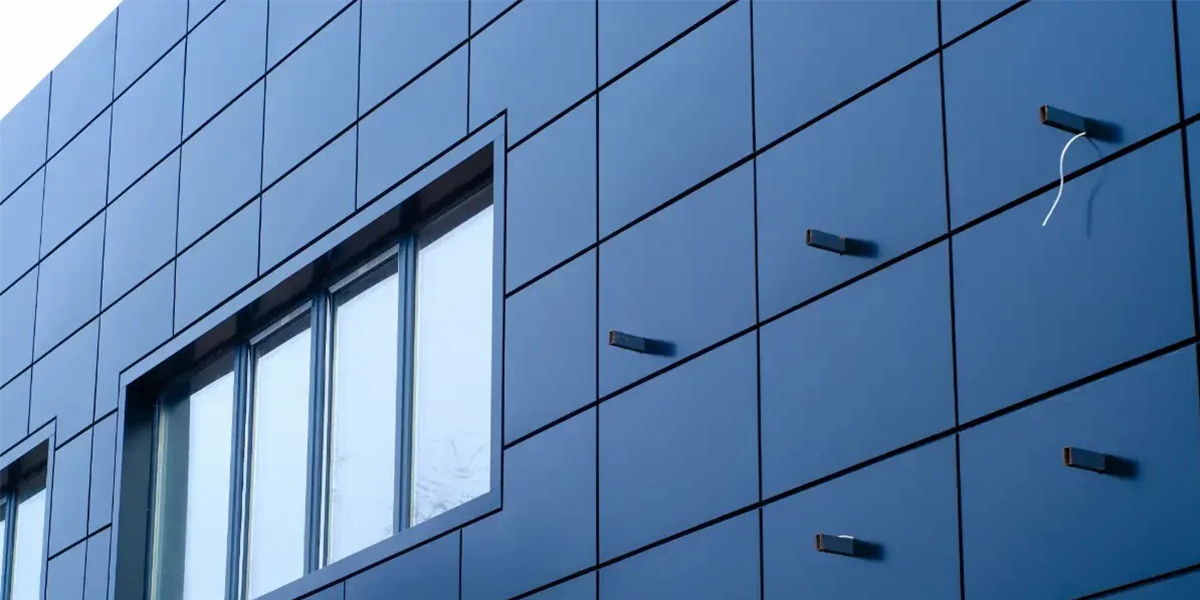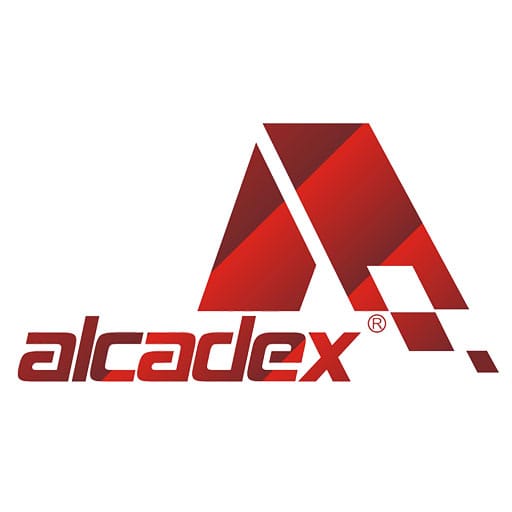
20 Dec Aluminium Composite Panels vs. Solid Aluminium Sheets: Understanding the Differences
Table of Contents
The main difference is that an ACP (Aluminum Composite Panel) is a composite material with a plastic or mineral core sandwiched between two thin aluminum sheets, while a solid aluminium sheet is a single, denser piece of aluminum.
In the construction and design sectors, aluminium composite panels (ACPs) and solid aluminium sheets are commonly used materials that serve different purposes based on their unique properties. Although both are aluminium-based, their composition and structure result in distinct characteristics and applications.
This article aims to clarify the differences between these two materials to help professionals make well-informed decisions for their projects
What are Aluminium Composite Panels?
An aluminium composite panel, or ACP, is a flat panel product consisting of two thin, coated aluminium sheets bonded together with a core made of plastic polyethylene. This sandwich-like construction provides several advantages over traditional materials.
Aluminium Composite Panel Advantages:
1. Lightweight: The hollow core of ACPs makes them significantly lighter than solid aluminium sheets, facilitating easier handling and installation.
2. Design Flexibility: The ability to print or laminate various designs and finishes onto the ACP surface offers designers a wide range of aesthetic options.
3. Cost-Effective: Due to their lightweight and easy installation, ACPs can be more cost-effective for large-scale projects that require quick and efficient construction.
4. Thermal Insulation: The polyethylene core can provide improved thermal insulation, contributing to energy efficiency in buildings.
5. Ease of Maintenance: The flat, smooth surface of ACPs makes them easy to clean and maintain, suitable for low-maintenance applications.
What are Solid Aluminium Sheets?
Solid aluminium sheets also know as aluminium panel, as the name suggests, are flat sheets of aluminium alloy. They offer a robust and durable solution for various construction and manufacturing purposes due to their high strength-to-weight ratio and resistance to corrosion.
Aluminium Sheet Advantages:
1. Durability: Solid aluminium sheets are known for their strength and resistance to corrosion, making them suitable for outdoor applications and harsh environments.
2. Lightweight: Despite their durability, solid aluminium sheets remain lightweight, making them easier to handle and install compared to heavier materials like steel.
3. Versatility: The malleability of aluminium allows solid aluminium sheets to be easily cut, shaped, and welded, providing a versatile solution for various industry needs.
4. Fire Resistance: Being non-combustible, solid aluminium sheets offer excellent fire resistance, making them a safe choice for exterior cladding.
What are the Differences Between ACP panels and Solid Aluminium Sheets:
| Feature | Aluminium Composite Panel (ACP) | Solid Aluminium Sheet |
| Construction | Two aluminum sheets bonded to a non-aluminum core (plastic or mineral) | A single, solid sheet of aluminum |
| Weight | Lighter due to the core | Heavier |
| Durability | Strong but less impact-resistant than solid aluminum; prone to denting | Highly durable, impact-resistant, and structurally stronger |
| Corrosion Resistance | Good, but depends on the quality of the aluminum sheets and core | Excellent corrosion resistance, especially in extreme weather conditions |
| Flexibility & Form | Very flexible and can be easily bent or shaped; retains its shape well after installation | Less flexible and harder to form than ACP |
| Installation | Easy and fast to install due to lightweight nature | More labor-intensive and requires more precision, especially with thicker sheets |
| Cost | Generally more affordable | Typically more expensive |
| Applications | Cladding, signage, interior design, and roofing | Applications requiring high structural strength, like industrial settings or some roofing applications |
1. Product Structure and Material: ACPs are sandwich structures with a plastic polyethylene core, while solid aluminium sheets are made entirely of aluminium alloy.
2. Weight and Handling: ACPs are lighter, making them easier to transport and install, whereas solid aluminium sheets are heavier but offer greater durability and strength.
3. Durability and Strength: Solid aluminium sheets provide superior durability and can withstand more physical damage compared to ACPs, making them suitable for structural applications.
4. Aesthetic Appeal and Design Flexibility: ACPs offer a wider range of design possibilities due to their composite structure and variety of finishes, making them a preferred choice for architects and designers.
5. Fire Resistance and Safety: Solid aluminium sheets offer superior fire resistance compared to ACPs, ensuring safer building environments.
6. Cost-Effectiveness: ACPs are more affordable than solid aluminium sheets, making them a cost-effective solution for large-scale projects.
7. Thermal and Acoustic Insulation: ACPs provide better thermal and acoustic insulation due to their plastic core, making them suitable for energy-efficient buildings and noise reduction.
8. Environmental Impact: Both ACPs and solid aluminium sheets are recyclable, contributing to sustainability in construction. However, the recyclability of ACPs depends on the type of core used.
9. Maintenance: ACPs are typically easy to clean and maintain, making them ideal for low-maintenance applications, while solid aluminium sheets may require occasional polishing or coating reapplication.
Conclusion:
The choice between aluminium composite panels and solid aluminium sheets depends on the specific requirements of your project. ACPs are the go-to choice for lightweight, aesthetically versatile, and cost-effective solutions, perfect for cladding, signage, and interior designs.
On the other hand, solid aluminium panels are better suited for projects that prioritize strength, fire resistance, durability, and long-term performance in harsh conditions. Understanding their distinct properties and applications is crucial for making an informed decision that aligns with your project’s needs.


